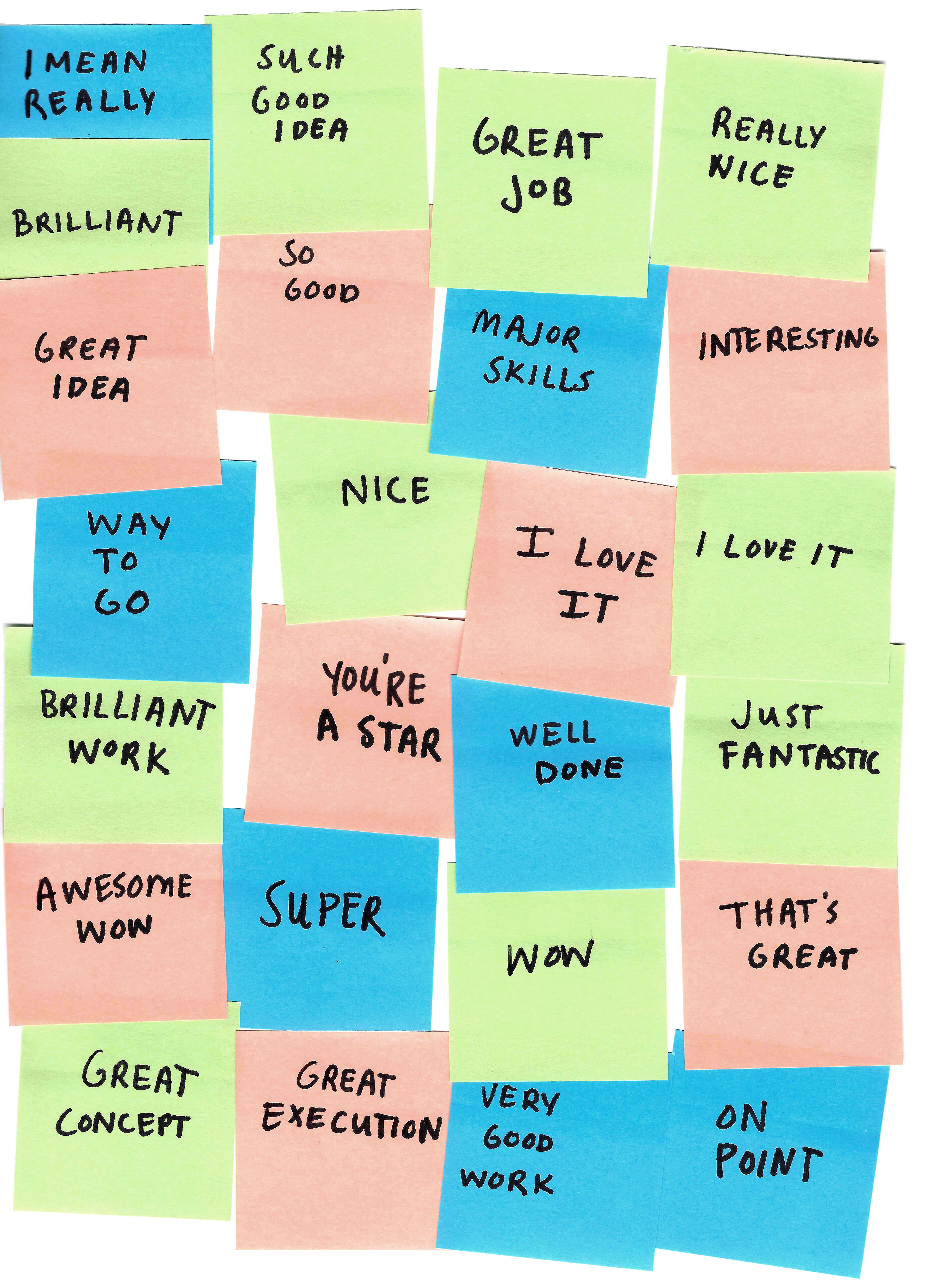
Oh, the dreaded critique session. You spend days and days working in isolation, then show up to class, compare your project to your classmate’s, and begin to doubt the quality of your work.

My biggest pet peeve in the classroom is when someone immediately puts their own work under the bus. They’ll start out by saying, “Well, I didn’t really have that much time to work on this, so it doesn’t really look the way that I want it to, and this is all going to change, and I know it doesn’t look that great…”
It’s like they try to diminish the blow of negative criticism by being the first person to bash the work.
We've all been that person at one point or another. But while it's good to be honest, I think it’s better to speak confidently rather than apologetically. Skip all the “woulda, shoulda, coulda’s” and just get straight to the point. Didn’t have enough time? No one needs to know that. Doesn’t look right? Let’s talk about why not.
This applies especially to giving presentations. No one (except your friends) needs to know that you didn't start working on your presentation due the next morning until 4 am (because, I've obviously never done that...). You'll get a better critique, and your classmates and professor will take you and your work more seriously, if you take your work seriously—even if it only took you five minutes.
Another thing I see often is when people become so attached to their work that they can’t take any criticism. I myself have been guilty of this a number of times. But your work is going to communicate different things to different people, and other reactions to your work are completely valid. You don’t have all the answers (and it's supposed to be that way).
Don't be afraid to ask your peers for advice, and additionally, don't be too timid to give it. The people who seek out different opinions and try to get the most feedback, are often the people with the best work. I can’t stand it when 45 minutes goes by in the classroom with everyone sitting silently with their faces in their laptops. This is no different than doing what you normally do at home and doesn’t take advantage of the pairs of eyes sitting to your right and left.
I'm sure you're aware that a lot of designers are super opinionated and so, in my experience, people are generally enthusiastic about giving advice. You just have to ask them for it.

And on the flip-side, when you're the one giving the advice, try to start out with positive criticism before "constructive criticism." Compliments can brighten someone's day!
The classroom is your opportunity to talk about design. Be chatty in class. Make friends. Insert yourself. Join in the conversation. Become a part of everyone’s process. Invite people to become a part of your’s, and watch the work improve because of it.